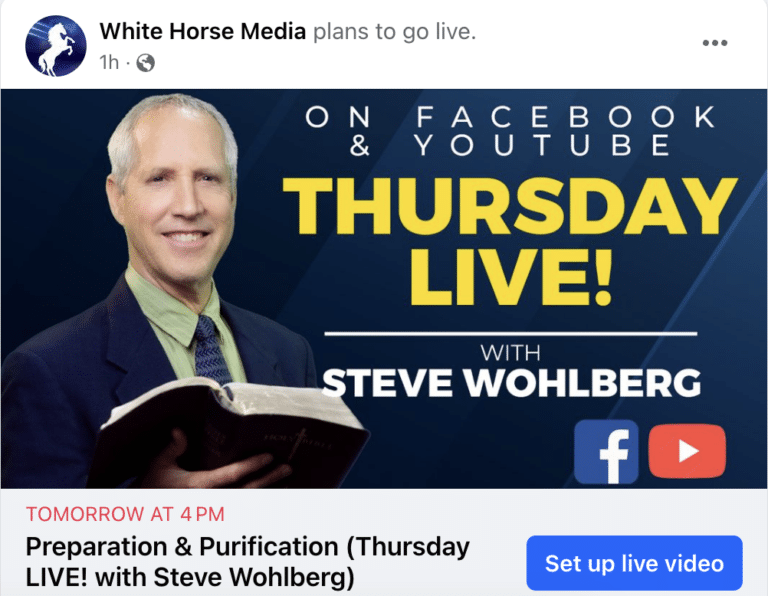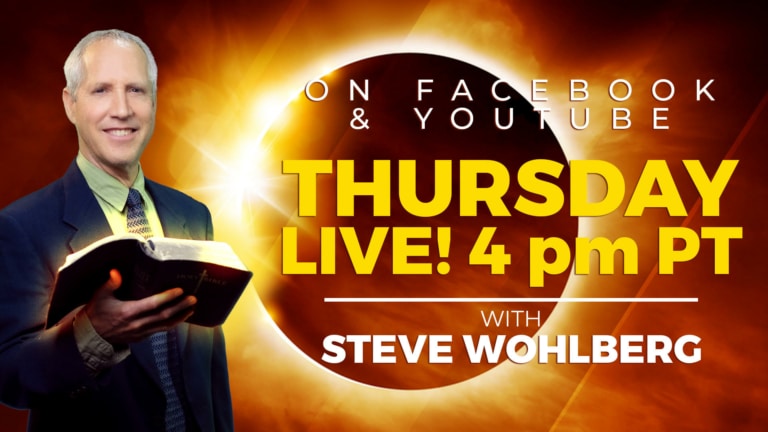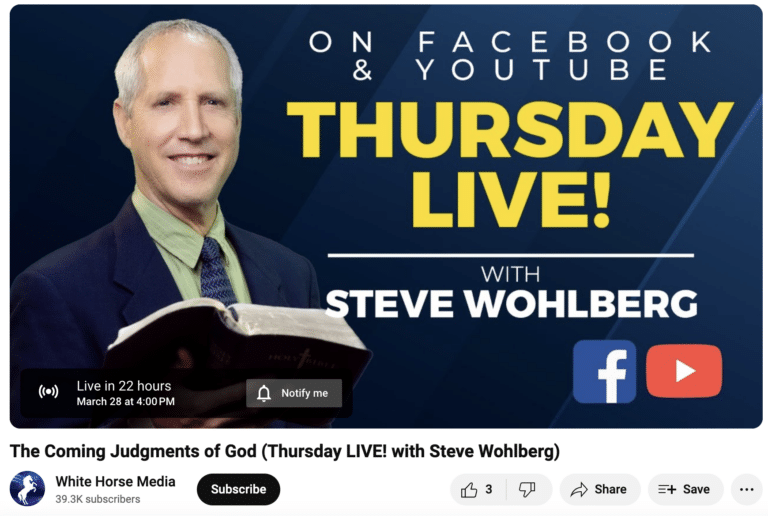The book of Revelation was given on the Sabbath: “I was in the Spirit on the Lord’s day” (Revelation 1:10), wrote John. The “Lord” is obviously Jesus. So what is His “day”? Many believe it to be Sunday, yet there is no Scriptural support for this private opinion. On the contrary, the only day that Jesus specifically identified as His day was the Sabbath. Christ declared, “The Son of man is Lord even of the Sabbath day .” Matthew 12:8. Thus Christ revealed that He is “Lord” of that “day.” As usual, Jesus was actually quoting Old Testament Scripture and applying it to Himself. The fourth commandment declares, “But the seventh day is the Sabbath of the Lord.” Exodus 20:10. There it is. Jesus is Lord of the Sabbath day, which means, He is God Almighty in human form. If we stick to the Word alone, it is clear that the Book of Revelation was communicated to John on “the Lord’s day,” which, biblically speaking, is the Sabbath day.
The number “7” is God’s special number in the book of Revelation: Significantly, the book of Revelation speaks of 7 churches (1:11), 7 golden candlesticks (1:12), 7 stars (1:16), 7 lamps of fire (4:5), 7 Spirits of God (4:5), 7 seals (5:1), 7 trumpets (8:2), 7 angels (15:1), and 7 last plagues (15:1) to be poured out on those who follow the beast whose number is 666. Rev. 13:18. Thus the number “7” is God’s special number. Jesus Christ is represented as a “lamb … having seven horns and seven eyes” (Revelation 5:6), which reveals that the number “7” is Jesus Christ’s special number too, for it points to Him as the One who made heaven and earth in six days, and who rested on the seventh day. John 1:1-3; Ex. 20:11; Col. 1:16. Rev. 1:8,10,11; 22:12-14, 16 (KJV).
The Beast or the Creator?: In the book of Revelation, Jesus Christ warned that eventually “all the world” will wonder “after the beast” and “worship the beast.” Rev. 13:3, 4; 14:9. To avoid worshipping “the beast,” Revelation specifically says we should “worship Him that made heaven and earth, the sea, and the fountain of waters.” Rev. 14:7. Thus one group worships the beast (Rev. 14:9), while the other group worships the Creator. Rev. 14:7. Additionally, those who worship the Creator have another key characteristic: They “keep the commandments of God and have the faith of Jesus.” Rev. 14:12. If you look at the Ten Commandments (Ex. 20), there is only one commandment about worshiping the Creator, and it is the one that states, “For in six days the Lord made heaven and earth, the sea, and all that in them is, and He rested on the seventh day.” Ex. 20:11. By comparing Rev. 14:7 with Ex. 20:11, it is clear that Rev. 14:7 is simply quoting the fourth commandment and emphasizing its importance. Thus we see that Jesus Christ, who originally gave “The Revelation” to John on the Sabbath day, has also revealed in Revelation’s prophecies His invitation to us to return to the Sabbath commandment to avoid following the beast!
Revelation points to “the foundation of the world”: Notice carefully: “All that dwell upon the earth shall worship him [the beast], whose names are not written in the book of life of the Lamb slain from the foundation of the world.” Rev. 13:8. At the “foundation of the world,” the Son of God made planet Earth in six days, and rested on the seventh day. See John 1:10; Ex. 20:11. When Adam and Eve sinned by yielding to the serpent’s lies (Gen. 3:1-6), immediately the Son of God volunteered to become the Savior of fallen humanity. Thousands of years later, He appeared on earth as a Man to “seek and to save that which was lost” (Luke 19:10), that is, to eventually restore us to our original condition before the fall. If Adam and Eve had never sinned, they would have been happy, seventh-day Sabbath-keeping followers of their Creator throughout all eternity. Jesus died to bring us back to the Garden, to our original state. This is the purpose of the entire plan of salvation. By reading Genesis 1 and 2, by going back to the “foundation of the world,” we learn the truth.
The “little horn” seeks to “change times and laws” (Daniel 7:25): By carefully comparing Daniel 7 with Revelation 13, we learn that “the beast” of Revelation is also called a “little horn” by Daniel the prophet. One of the key characteristics of the “little horn” is: “he shall think to change times and laws.” Dan. 7:25. When we look at the Ten Commandments, we discover that there is only one commandment about “time,” – the Sabbath commandment. All Protestant Reformers of the 16th century identified the Roman Catholic Church as the “little horn” and “the beast.” Significantly, the Roman Church boasts that it changed the Sabbath into Sunday, which fits the prophecy of Daniel 7:25 exactly. Three times in Daniel chapter 7, God is spoken of as “the Ancient of days.” Daniel 7:9, 13, 22. This unique phrase, “the Ancient of days,” is found nowhere else in the entire Bible, and points back to the original Creation Week when God Almighty first made the world in “six days” and rested on the“seventh day.” Genesis 1; 2:1-3. The “little horn,” with its “mouth speaking great things” (Dan. 7:8) attacked what God set up at “the foundation of the world.”
The prophecies of Daniel and Revelation reveal that Jesus Christ is seeking to undo this damage and to lead His people back, step by step, first to the cross, and then to the keeping of all of “the commandments of God” (Rev. 14:12), including the fourth, which points to the true Creator of heaven and earth. Jesus Christ is our Creator, and our “Lamb,” who died because we have broken the Ten Commandments.
“If any man has an ear, let him hear.”
Revelation 13:9
For more information, read Truth Left Behind by Steve Wohlberg, Sunday: The Origin of Its Observance in the Christian Church, by E.J. Wagonner, or watch the fascinating 5-part TV documentary, The Seventh-day: Revelations from the Lost Pages of History, produced by LLT Productions. All three are now available from White Horse Media. www.whitehorsemedia.com. 1-800-78-BIBLE.






